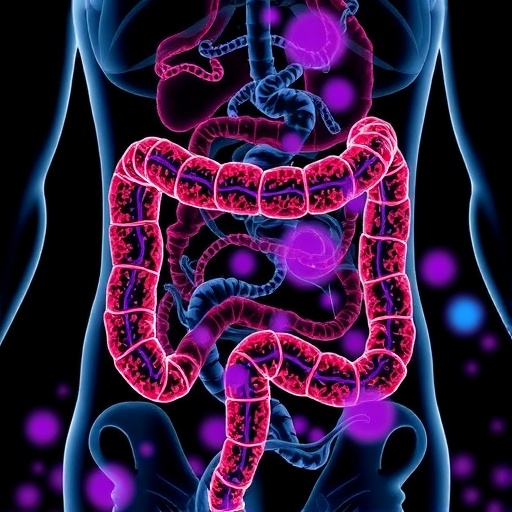In recent years, the exploration of the gut microbiome and its profound relationship with human health has emerged as a groundbreaking field in biomedical research. The gut microbiome, a complex ecosystem of trillions of microorganisms residing in our intestines, is increasingly recognized as a critical determinant of various physiological processes. Notably, its role in aging and longevity has garnered particular attention. In the forthcoming article by Tseng and Wu titled “From Dysbiosis to Longevity: A Narrative Review into the Gut Microbiome’s Impact on Aging,” published in the Journal of Biomedical Science, the authors unpack the intricate interplay between gut microbiota and the aging process.
One of the primary foci of the article is dysbiosis, which refers to the microbial imbalance commonly observed with aging. Dysbiosis is characterized by a reduction in microbial diversity, along with an increase in pathogenic microbes that can compromise overall health. Tseng and Wu eloquently argue that this state of microbial imbalance is not merely a bystander in the aging process but rather a potential origin of several age-related diseases. The article emphasizes that understanding dysbiosis is crucial for developing effective interventions aimed at promoting healthy aging.
Linking dysbiosis to broader health implications, the authors provide evidence suggesting that microbial imbalances can influence a range of age-associated conditions including inflammatory diseases, obesity, and even cognitive decline. Research indicates that a structured gut microbiome contributes to metabolic regulation, immune system efficiency, and neural function. As people age, shifts in their microbiota diversity can disrupt these critical functions, leading to the onset of chronic diseases commonly seen in older individuals.
An insightful aspect of the review is the mention of specific microbial communities that have been associated with longevity. Studies have identified particular strains of bacteria, such as Akkermansia muciniphila and certain Bifidobacteria species, that are frequently present in the gut microbiomes of centenarians. These beneficial microbes are believed to promote metabolic health, enhance immune responses, and even protect against inflammation. Tseng and Wu present a compelling case for the inclusion of probiotic therapies aimed at enriching these beneficial strains as a potential strategy for combating age-related decline.
In addition to probiotics, Tseng and Wu discuss the potential impact of diet on gut microbiome health as one navigates aging. The authors highlight that dietary patterns rich in fiber, polyphenols, and fermented foods not only support the growth of beneficial gut bacteria but also stave off diseases prevalent in older adults. A diet promoting a diverse microbiome can aid in maintaining metabolic balance, bolstering immune defenses, and enhancing cognitive functions—all essential factors in promoting longevity.
Moreover, the review underscores emerging research about the gut-brain connection—how the microbiome affects neurological health and may even influence mental health conditions like depression and anxiety, which can exacerbate cognitive decline in older adults. Tseng and Wu cite studies demonstrating that gut-derived metabolites, such as short-chain fatty acids, can affect neuroinflammation pathways, underscoring the need for further exploration into gut-directed therapies for neurological health.
Anticipating the revolutionary potential of microbiome research, the authors navigate discussions regarding the implications of microbiome manipulation in clinical settings, particularly for geriatric patients. They suggest that personalized microbiome interventions could tailor strategies to individual microbial profiles for maximizing health outcomes. This potential for precision medicine provides a groundbreaking frontier for healthcare as it pertains to aging populations, representing a shift from one-size-fits-all approaches toward more nuanced, individualized strategies.
Now, while these insights are promising, the journey toward integrating microbiome awareness into standard geriatric care does face challenges. Significant hurdles exist in translating this research into actionable interventions within healthcare systems. Tseng and Wu advocate for robust clinical trials designed to assess the efficacy of microbiome-modulating therapies in older adult populations. This would aid in solidifying the scientific foundation needed to develop practical applications that can holistically address the healthcare needs of aging individuals.
Furthermore, the authors touch upon the ethical considerations involved in microbiome research. Questions arise regarding ownership of microbiome data, the implications of microbial manipulation, and the potential for unequal access to microbiome therapies among different socioeconomic groups. These considerations are critical as society moves toward implementing microbiome-based therapies on a broad scale.
The narrative review culminates in an optimistic tone, positing that ongoing research into the gut microbiome may revolutionize our understanding of aging and its associated maladies. As scientists continue to unravel the complex connections between gut health and systemic aging, innovations in dietary recommendations and therapeutic strategies could emerge, fostering healthier, longer lives. Indeed, as Tseng and Wu assert, harnessing the power of our gut microbiome may be a key to unlocking the secrets of longevity itself.
Ultimately, this article serves not only as a comprehensive review of the current understanding of the gut microbiome’s impact on aging but also as a clarion call for deeper exploration in the field. The potential implications for improving healthspan and lifespan are overwhelmingly positive, signaling a future where science and familiarity with the microbiome will empower individuals to take charge of their well-being as they age.
Subject of Research: The impact of the gut microbiome on aging and longevity.
Article Title: From dysbiosis to longevity: a narrative review into the gut microbiome’s impact on aging.
Article References: Tseng, CH., Wu, CY. From dysbiosis to longevity: a narrative review into the gut microbiome’s impact on aging. J Biomed Sci 32, 93 (2025). https://doi.org/10.1186/s12929-025-01179-x
Image Credits: AI Generated
DOI: https://doi.org/10.1186/s12929-025-01179-x
Keywords: Gut microbiome, aging, dysbiosis, probiotics, dietary impact, longevity, microbiome manipulation, gut-brain connection, personalized medicine.
Tags: aging process and gut microbiome interactionbiomedical research on agingdysbiosis and health risksgut health and age-related diseasesgut microbiome and agingimpact of gut microbiome on healthimportance of gut health in elderlyinterventions for healthy agingmicrobial diversity and longevityrelationship between microbiota and longevityrole of gut bacteria in agingTseng and Wu microbiome review





